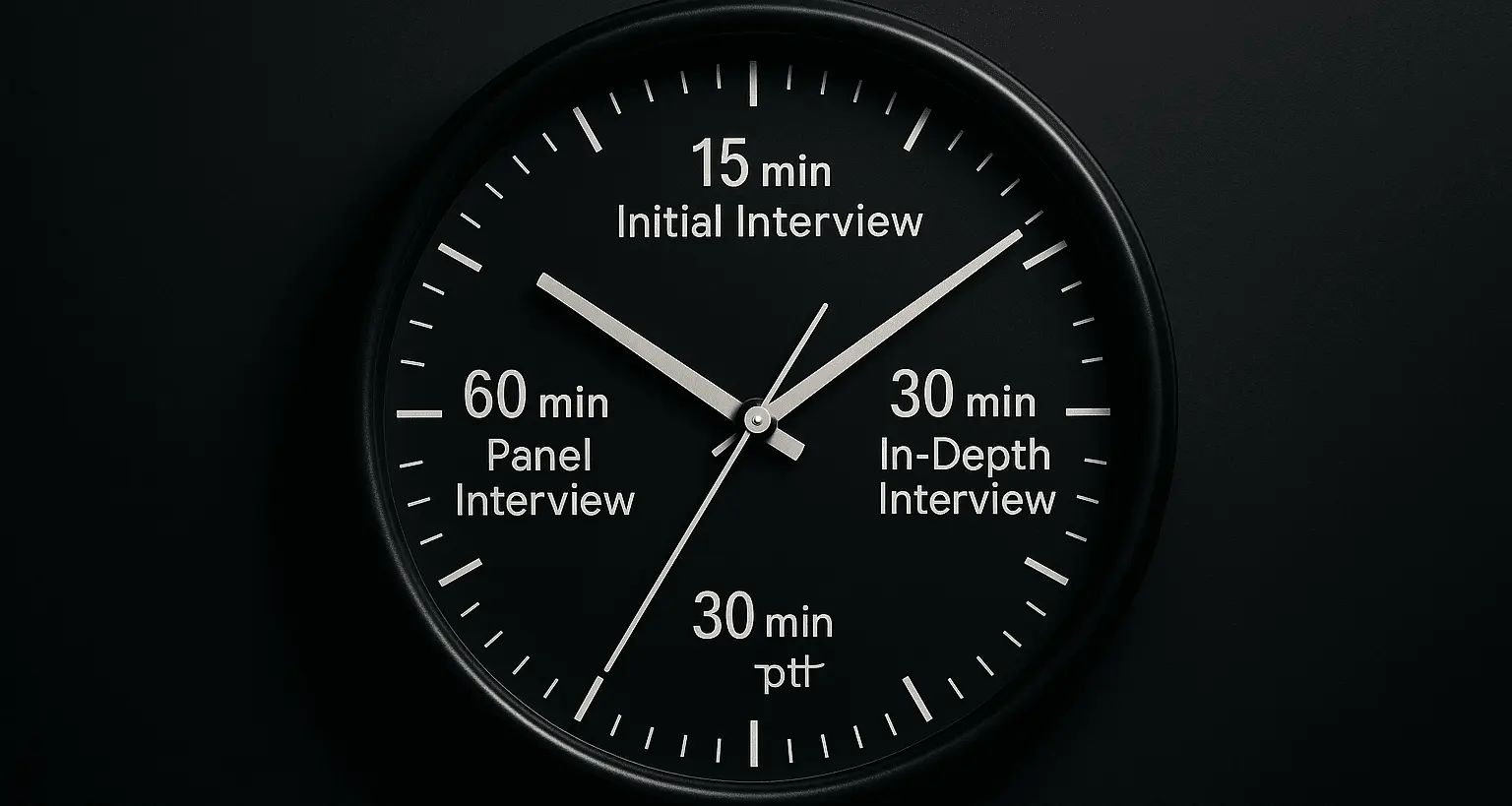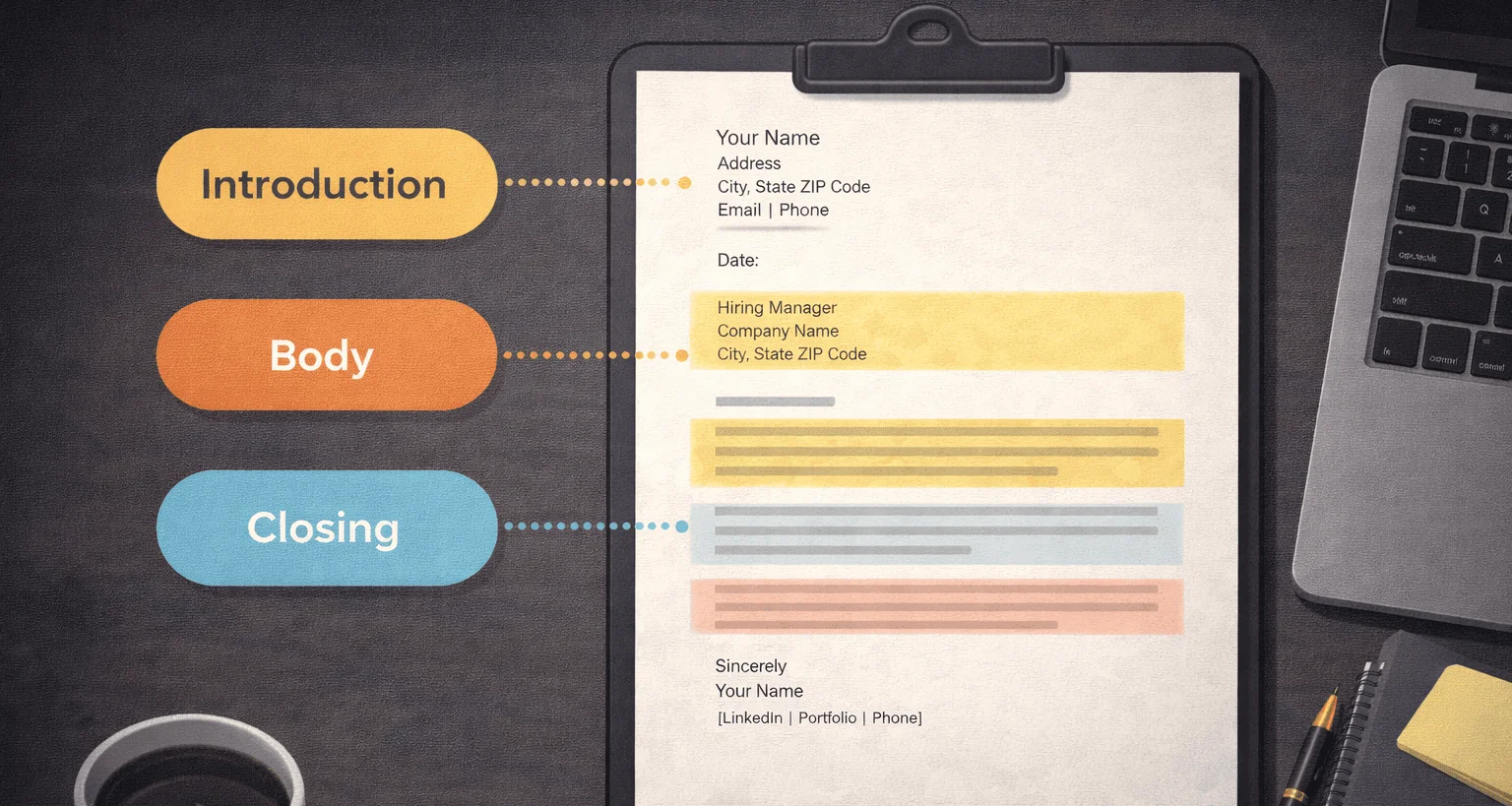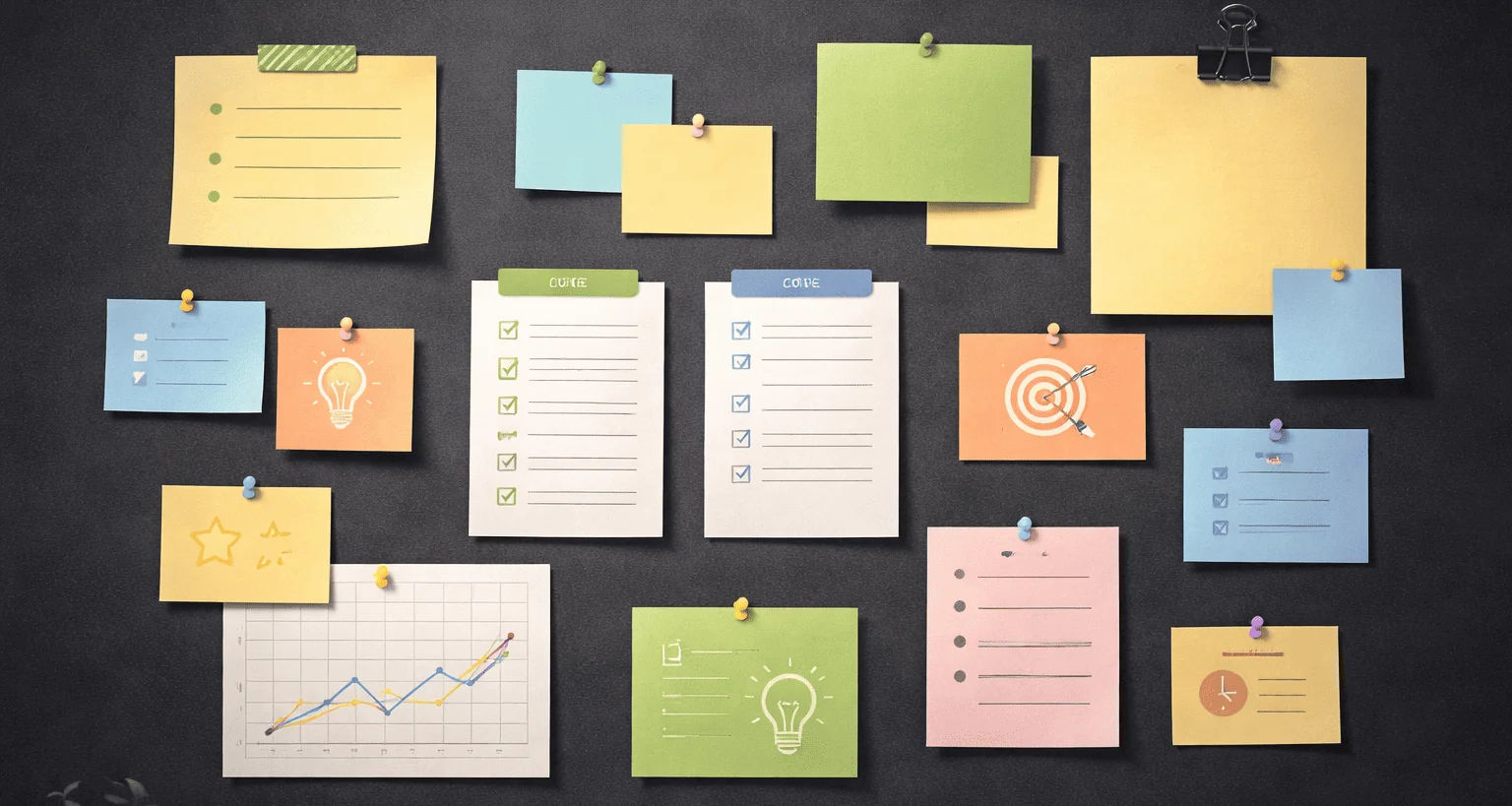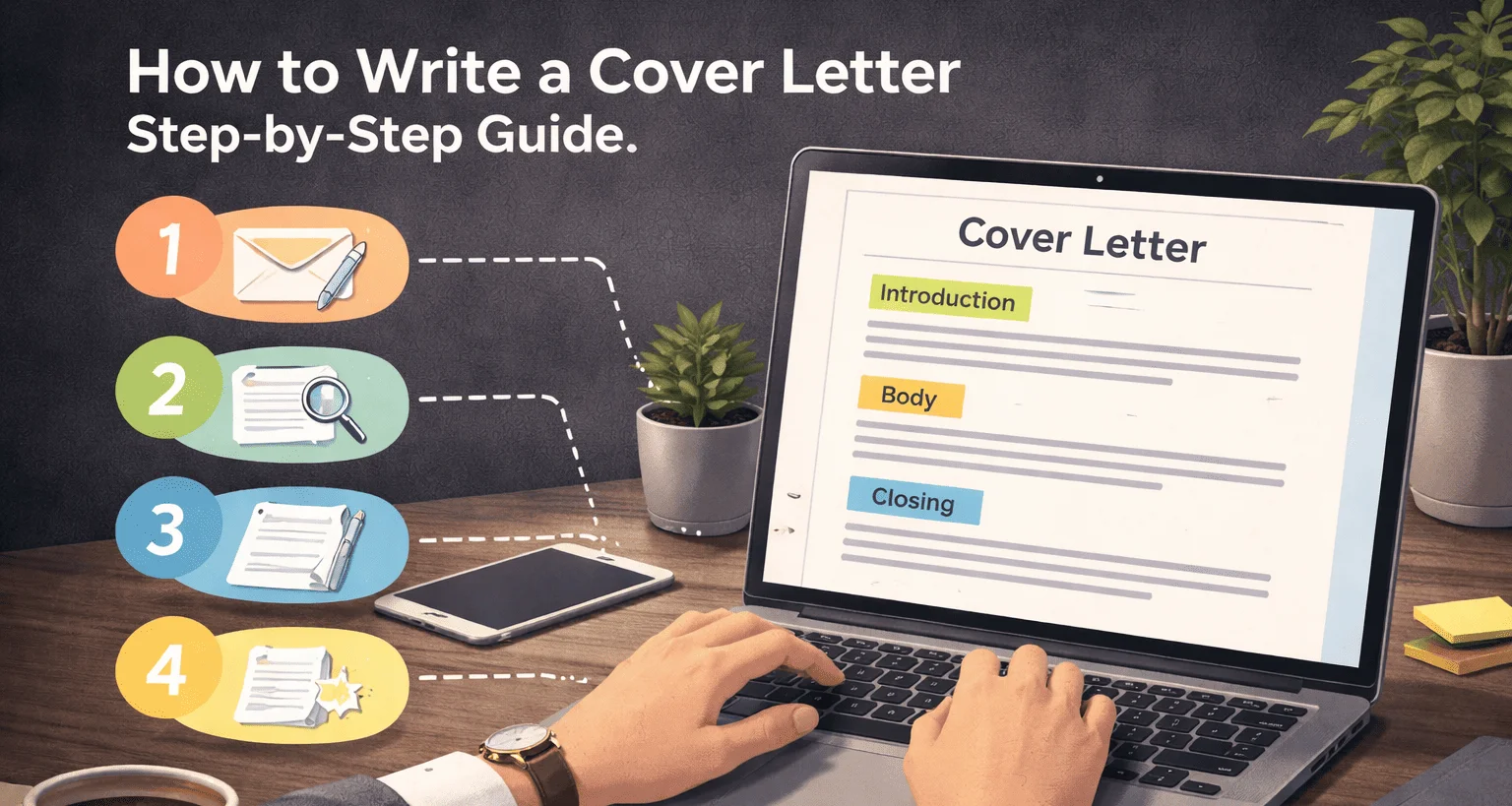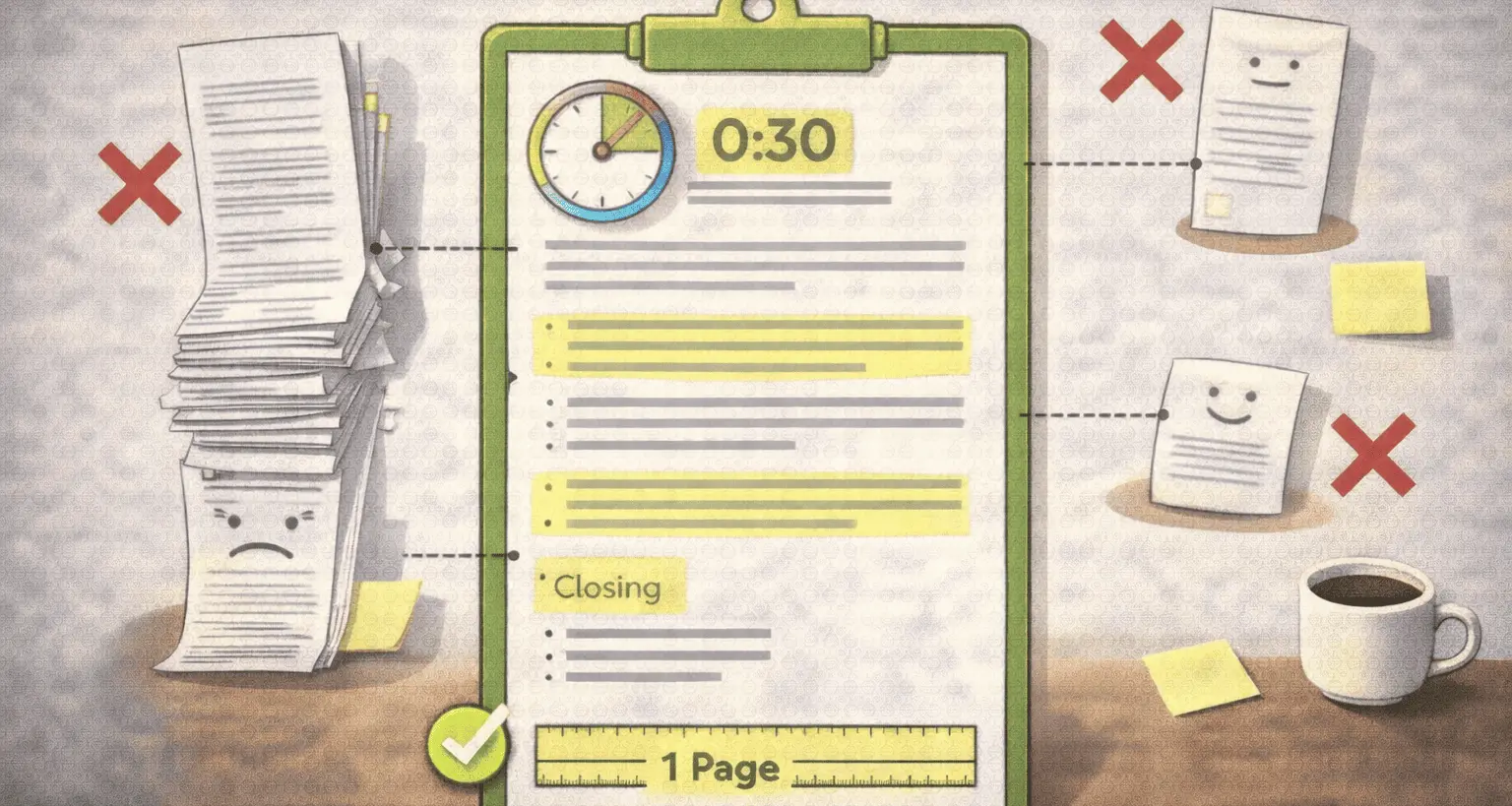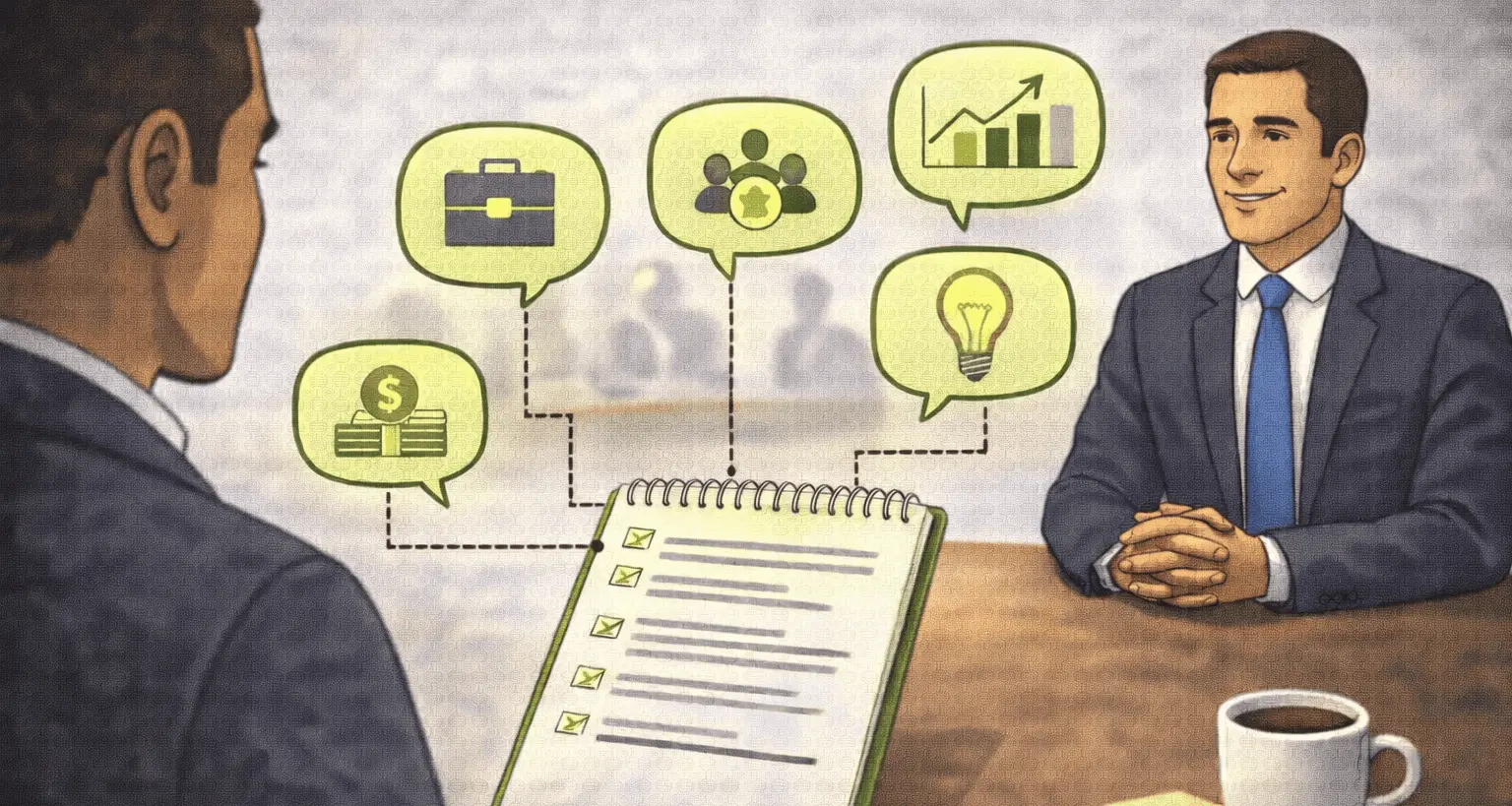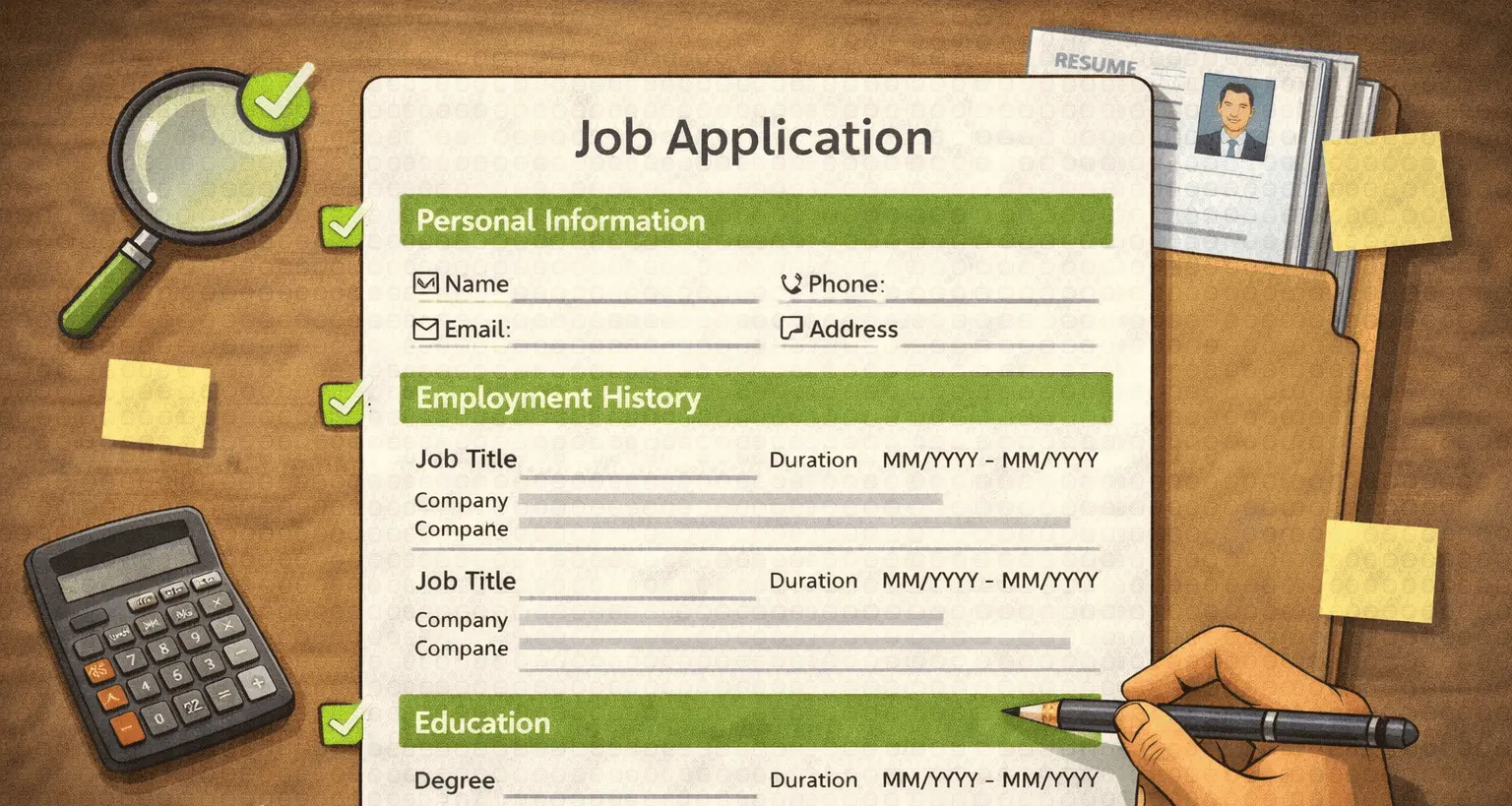You've scheduled your interview and now you're wondering: how long is a job interview, really? The answer matters more than you might think. Understanding interview duration shapes your preparation strategy, helps you manage anxiety, and sets realistic expectations. Interview length varies dramatically depending on the role, company, and interview stage—what matters is knowing what's normal so you walk in prepared and confident. This guide breaks down exactly what to expect, from initial phone screens to final executive rounds, so you can prepare strategically without unnecessary stress.
For a helpful overview of structured hiring from a major employer, see Google’s how‑we‑hire.
Interview duration also reveals priorities. A quick 15-minute screening is different from a comprehensive two-hour technical session. Each timeframe signals different evaluation goals. By understanding what those timeframes mean and how to prepare for them, you'll show up ready to make the most of whatever time you're given. Whether you're facing your first interview or your fiftieth, this breakdown will eliminate guesswork and boost your confidence walking in.
Initial Phone Screen: The Quick First Impression (15-30 Minutes)
The initial phone screen is your opening act. This brief conversation typically runs 15-30 minutes, with 20 minutes being the sweet spot for most companies. How long is a job interview at this stage? Think of it as a screening tool rather than a deep evaluation. Recruiters are checking four things: Do you have the baseline qualifications? Can you communicate clearly? Are you genuinely interested? Does your salary expectation align with the budget?
Don't mistake brevity for lack of importance. This call determines whether you advance. Prepare a tight 30-second elevator pitch about who you are and why you're interested in the role. Have 2-3 specific questions ready about the position or team. Know your availability for next-round interviews. Keep your answers concise but substantive—avoid rambling. The goal isn't to impress with length; it's to prove you're worth a longer conversation. Most candidates who pass this stage made a clear case for moving forward without wasting time.
For additional guidance, review these practical tips on career advice.
Why does this matter? Because how long is a job interview at the screening stage tells you something about the process. A 30-minute call suggests the recruiter is taking time to learn about you and your fit. That's positive. If you get cut off abruptly or rush through, you're not wrong—some screening calls are simply shorter. The key is using the time effectively regardless of length.
Technical Phone Screening: Deep Dive With a Senior (30-60 Minutes)
For technical roles—software engineers, data scientists, product managers—you'll often face a technical phone screen. How long is a job interview when it's technical? Usually 45-60 minutes, though 30-45 minutes is common for more junior roles. This is where the real evaluation begins. You're talking directly to someone who does the work, not a recruiter. They want to understand your technical depth, problem-solving approach, and communication style.
During a technical phone screen, expect live coding, system design discussion, or technical problem-solving depending on the role. You'll share your screen and work through challenges in real-time. The interviewer is watching how you approach problems: Do you ask clarifying questions? Do you think out loud? Can you explain your reasoning? Do you recover from mistakes? How long is a job interview like this? Long enough to truly assess these competencies, which is why the time investment is substantial.
To prepare, explore resources like Tech Interview Handbook for frameworks and practice topics, and use LeetCode to build problem‑solving stamina. If system design is in scope, skim the fundamentals of systems design so you can discuss trade‑offs confidently.
Pro tip: Use the first 5-10 minutes to warm up. Ask clarifying questions about the problem, verify your understanding, and buy yourself thinking time. Spend 20-30 minutes on the actual problem-solving. Save 5-10 minutes for the interviewer's questions and your questions back to them. This structure maximizes your chances of showing your best work within the timeframe. If you finish early, dig deeper—ask edge cases, discuss trade-offs, explain optimizations. Most interviewers are impressed by candidates who use the full time productively.
First-Round In-Person or Video Interview: Standard Deep Dive (45-60 Minutes)
Once you've passed screening, you typically advance to a more formal first-round interview. How long is a job interview at this stage? Most first-round interviews run 45-60 minutes, often exactly one hour. This is your chance to go deeper than a phone screen. You're meeting with a team member or hiring manager for a substantive conversation about your background, the role, and mutual fit.
During a typical one-hour first-round, expect this breakdown: 5-10 minutes of pleasantries and opening context, 30-40 minutes of substantive questions about your experience and skills, and 10-15 minutes for your questions. How long is a job interview really interactive? Most of it. You won't sit passively. The interviewer will dig into specific projects, ask behavioral questions, and explore your technical or functional expertise. They want to understand what you've accomplished and how you think.
Come prepared with 4-5 STAR stories—specific examples that demonstrate relevant skills. Have 5-7 thoughtful questions about the role, team, and company. Know the role's job description cold. Most interviewers are impressed by candidates who've clearly done homework and who can articulate specific interest in their team. Use the full hour. If you finish early, keep exploring. Ask about challenges the team is facing, how success is measured in the role, what they love about working there. This depth signals engagement and genuine interest.
If you’re new to the STAR approach, read a concise overview of the STAR method to structure clear, focused stories.
Panel or Group Interviews: Extended but Focused (45-90 Minutes)
Some companies run panel interviews where you meet 2-4 people simultaneously. How long is a job interview when it's a panel format? Typically 60-90 minutes, though sometimes shorter. Each person on the panel often gets 15-20 minutes one-on-one with you, or they rotate through a group discussion where they ask different questions. This format lets companies evaluate you quickly without scheduling multiple rounds, and lets candidates meet multiple team members at once.
Panel interviews can feel intense because you're managing multiple personalities and energy levels at once. The key is treating it like multiple conversations, not one big interrogation. Make eye contact with whoever is speaking. Answer their questions directly. When transitioning between panel members, reset—you're in a fresh conversation, not continuing a running interview. How long is a job interview in a panel format? Long enough to require stamina, so bring water, take breaks if offered, and keep your energy consistent throughout.
Practical Assessment or Work Sample: Results-Focused (1-2 Hours, Sometimes Asynchronous)
Many companies now use practical assessments or work samples instead of traditional live interviews. How long is a job interview when it's a work sample? That depends on format. Some are timed live sessions where you solve a problem in 60-120 minutes under supervision. Others are take-home projects where you have 24-48 hours to complete them on your own schedule. This approach lets companies see your actual work quality, not just your interview performance.
Second-Round Interviews: Extended Evaluation (60-90 Minutes)
You've passed initial screening and impressed the first round. Now comes second-round interviews, typically with more senior team members or different functional areas. How long is a job interview in round two? Usually 60-90 minutes, sometimes split into two 45-minute conversations with different interviewers. This is where companies evaluate your depth, your ability to work across teams, and whether they genuinely want to work with you long-term.
Second-round conversations often go deeper on specific skills or explore different dimensions of the role. You might meet an engineer if you haven't already, a product person, a team member who'd work closely with you, or someone from a related team. Each person is assessing different things: technical depth, communication, collaboration, growth potential. How long is a job interview when it's this stage? Long enough to really explore fit, so prepare multiple stories and be ready to discuss challenges and what you learned from them.
By second round, companies are seriously considering you. That's why the conversation extends. They're not screening anymore; they're evaluating. Come prepared to discuss the role in depth, ask smart questions about the team's roadmap and culture, and show genuine enthusiasm. Most candidates are excited but nervous here. Let your authentic self show—they want to know if they'll enjoy working with you daily.
Final-Round or Executive Interviews: Leadership Assessment (30-90 Minutes)
You're near the finish line. Final rounds vary dramatically depending on company size and seniority level. How long is a job interview at the executive level? Anywhere from 30 minutes to 90 minutes. A final conversation with a VP might be a focused 30-minute conversation about cultural fit and vision. A final loop with multiple executives might stretch 2-3 hours total (including breaks).
Final-round interviews are less about skills and more about judgment, vision, and compatibility. They want to understand how you think about the business, how you make decisions, and whether you're someone they'd trust at the next level. Prepare to discuss not just what you've accomplished but why it matters. What problems are you solving? What's your philosophy on leadership or your area of expertise? How long is a job interview at this stage? Long enough to have a real strategic conversation, so come prepared with thoughtful perspectives, not just answers.
Full Interview Loop: The Complete Timeline (4-8 Hours Across Multiple Sessions)
When people ask "how long is a job interview process," they're often wondering about the complete journey. Total interview time from start to offer varies widely. For a mid-level position, you might have 4-6 hours of total interview time spread across 4-5 different sessions over 2-4 weeks. For senior roles, you could invest 8-12 hours across 5-7 rounds. Executive positions sometimes require even more.
Industry and Role Variations: Why Duration Differs
How long is a job interview varies significantly by industry and role. In sales, a first interview might be brief—companies want to see you sell yourself in 15-30 minutes and move fast. In engineering or research, interviews run longer—45-90 minutes per round because evaluating technical depth requires time. In executive search, interviews often run 60-90 minutes each because companies are making high-stakes decisions.
Consulting firms typically run longer interview loops than startups. McKinsey might have multiple rounds of case interviews, each 45-60 minutes, totaling 3-4 hours. A startup MVP might have two 45-minute conversations total. Academia and research roles often require longer discussions about your research philosophy. How long is a job interview in your specific field? Ask your recruiter upfront—they'll tell you the expected timeline and format.
If you’re preparing for consulting roles, review the basics of the case interview so you can pace your analysis within the allotted time.
Remote roles sometimes condense interview time into fewer, longer sessions to reduce fatigue. In-person interviews at a central location might stretch a full day with multiple sessions and breaks. Geography affects timing too. Cross-timezone interviews might be shorter to accommodate scheduling. Video interviews tend to feel more draining per minute than in-person conversations, so many companies shorten video rounds. Understanding these variations helps you prepare realistically for your specific situation.
Interview Intensity: Why Duration Matters Less Than Focus
Here's what most candidates don't realize: how long is a job interview matters less than how focused it is. A 30-minute phone call with a sharp recruiter who asks penetrating questions can be more intense than a 60-minute rambling conversation. Similarly, a 60-minute technical assessment where you solve substantive problems beats a 90-minute generic "tell me about yourself" conversation. Duration is a rough guide, not an absolute measure of interview quality.
Tips for Managing Interview Duration Effectively
Knowing how long is a job interview is one thing; managing that time strategically is another. Here are proven tactics:
- Ask upfront: "How much time do we have blocked for this conversation?" This sets clear expectations and helps you calibrate your answers.
- Budget your time: For a 60-minute interview, spend roughly 5 minutes on opening context, 40 minutes on substantive discussion, and 15 minutes on your questions. Adjust based on how the interview flows.
- Pace your stories: Have a 2-minute version and a 5-minute version of key stories. Some interviewers have more time for depth; others want efficiency.
- Don't fill silence: If you finish answering a question and pause, let the interviewer speak next. Don't ramble to fill time.
- Watch for cues: If an interviewer seems rushed, tighten your answers. If they lean in and ask follow-ups, you have their full attention—expand thoughtfully.
- Prepare more than you need: Have 7-8 STAR stories prepared. You'll use 3-4 depending on questions asked.
- Close strong: In the final minutes, reiterate genuine interest: "I'm genuinely excited about this opportunity because [specific reason]. What's the next step?"
For salary calibration ahead of screens and offers, consult the U.S. Bureau of Labor Statistics’ Occupational Employment and Wage Statistics to set realistic expectations.
Virtual vs. In-Person: Does Duration Change?
How long is a job interview changes slightly in virtual formats. Video interviews often run slightly shorter (5-10 minutes less) because video fatigue is real. Eye contact is more intense, there's no natural break that comes with moving to a conference room, and the flow feels different. Many companies adjust by scheduling 45-minute video interviews instead of 60-minute in-person ones.
For preparation checklists and etiquette, see Harvard’s guidance on interviewing (including virtual).
When Interview Duration Signals Red Flags
Sometimes interview duration tells you something important about the company or role. How long is a job interview giving you intel? Pay attention to these signals: If initial screening calls consistently run 5 minutes instead of 20, they might not have rigorous hiring processes—that could be good (fast-moving) or bad (low bar). If final-round interviews are extremely brief (10 minutes), they might already know their decision—which sometimes happens, but might also suggest limited genuine evaluation.
Preparing for Interview Duration: Your Practical Checklist
Once you know how long is a job interview you're facing, prepare specifically for that timeframe:
- 15-30 minute phone screen: Prepare a tight 30-second intro, 2-3 questions, salary research, and availability info. This is efficiency in a nutshell.
- 45-60 minute technical screen: Practice live coding or technical problem-solving under pressure. Time yourself doing practice problems. Aim to explain your thinking while solving.
- 60-90 minute first/second round: Prepare 5-7 STAR stories covering different competencies. Have 6-8 thoughtful questions about the role, team, and company.
- 90+ minute panel or full-day: Prepare for multiple conversations with fresh energy. Bring water, clear your head between sessions, and treat each interviewer as a fresh conversation.
- Take-home or practical assessment: Allocate the full time allowed. Don't rush. Quality and thoughtful approach matter more than speed.
The Bottom Line: How Long Is a Job Interview Really?
How long is a job interview? The answer ranges from 15 minutes for a brief phone screen to 2-3 hours for comprehensive final-round assessments. But the real answer is simpler: however long it is, make it count. Phone screens matter as much as final rounds. Fifteen minutes of genuine engagement beats an hour of going through the motions. Thirty minutes of sharp technical problem-solving is more valuable than 90 minutes of unfocused conversation.
Your job is to show up prepared and present for whatever timeframe you're given. Ask your recruiter what to expect, prepare specifically for that format, and execute with focus. Come with relevant stories, thoughtful questions, genuine curiosity, and authentic interest. Whether it's 20 minutes or 2 hours, if you show up like someone who genuinely wants this job and can deliver value, the length becomes irrelevant. The time investment pays off when you land the offer. For additional preparation strategies, explore our comprehensive interview prep guide and top questions breakdown.

